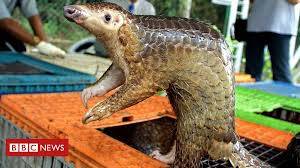LONDON - The race is on to find out how the deadly coronavirus jumped from animals to humans. Helen Briggs looks at how scientists are trying to trace the source of the outbreak.
Somewhere in China, a bat flits across the sky, leaving a trace of coronavirus in its droppings, which fall to the forest floor. A wild animal, possibly a pangolin snuffling for insects among the leaves, picks up the infection from the excrement.
The novel virus circulates in wildlife. Eventually an infected animal is captured, and a person somehow catches the disease, then passes it on to workers at a wildlife market. A global outbreak is born.
Scientists are attempting to prove the truth of this scenario as they work to find wild animals harbouring the virus. Finding the sequence of events is “a bit of a detective story”, says Prof Andrew Cunningham of Zoological Society London (ZSL). A range of wild animal species could be the host, he says, in particular bats, which harbour a large number of different coronaviruses.
So how much do we know about the “spillover event”, as it’s known in the trade? When scientists cracked the code of the new virus, taken from the body of a patient, bats in China were implicated.
The mammals gather in large colonies, fly long distances and are present on every continent. They rarely get sick themselves, but have the opportunity to spread pathogens far and wide.






